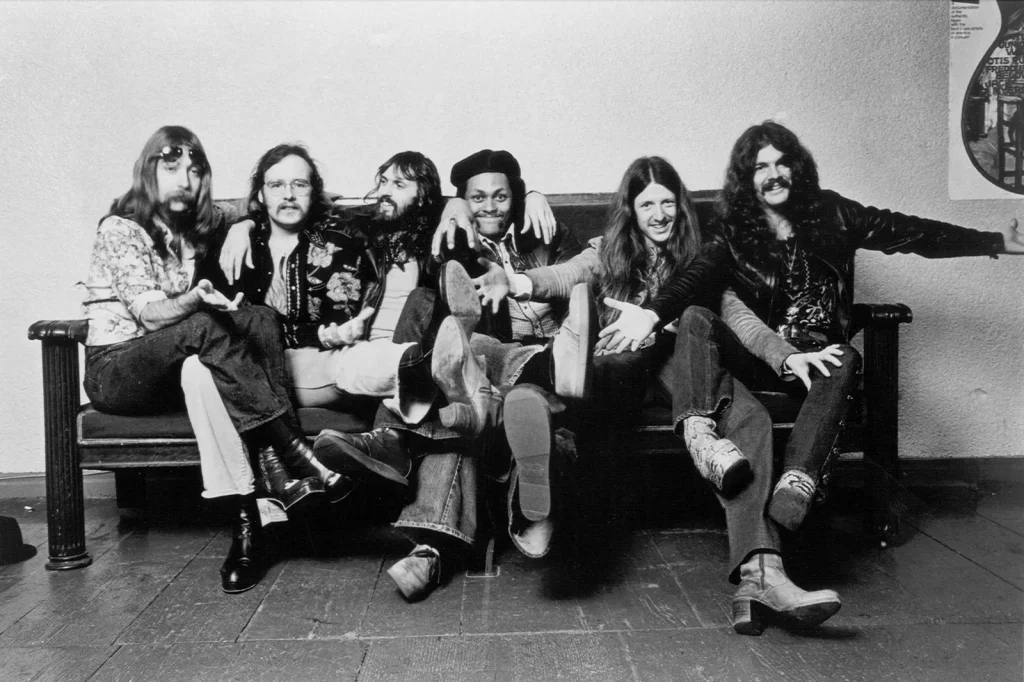Blog
The Doobie Brothers: Rock Legends Through Decades of Musical Evolution
Origins and Formation
The Doobie Brothers, formed in 1970 in San Jose, California, have etched their place in rock history with their unique blend of rock, soul, and rhythm and blues. The band’s original lineup, featuring Tom Johnston, Patrick Simmons, John Hartman, and Dave Shogren, quickly gained a following for their tight harmonies, dynamic guitar work, and infectious melodies.
Early Success and Breakthrough
The band’s self-titled debut album was released in 1971, but it was their second album, “Toulouse Street” (1972), that brought them national attention. Featuring hits like “Listen to the Music” and “Jesus Is Just Alright,” the album showcased the band’s ability to craft catchy, radio-friendly tunes with a rock edge. This success was followed by a string of hit albums, including “The Captain and Me” (1973) with classics like “Long Train Runnin'” and “China Grove.”
Lineup Changes and Musical Evolution
Throughout the 1970s, the Doobie Brothers underwent several lineup changes, most notably the addition of Michael McDonald in 1975. McDonald’s influence brought a more soulful, R&B-infused sound to the band, which was evident on the 1976 album “Takin’ It to the Streets” and the 1978 album “Minute by Minute,” the latter featuring the Grammy-winning hit “What a Fool Believes.” This period marked a significant evolution in their musical style, broadening their appeal and showcasing their versatility.
Continued Success and Legacy
Despite disbanding in 1982, the Doobie Brothers reunited in 1987 and have continued to tour and record new music. Their ability to adapt and evolve has kept their sound fresh and relevant across different musical eras. In 2020, the band celebrated their 50th anniversary and were inducted into the Rock and Roll Hall of Fame, a testament to their enduring impact on the music industry.
Influence and Contribution to Rock Music
The Doobie Brothers’ influence extends beyond their commercial success. Their innovative blending of genres paved the way for future bands, and their tight harmonies and intricate guitar work set a high standard in rock music. Songs like “Black Water,” “Rockin’ Down the Highway,” and “South City Midnight Lady” have become timeless classics, enjoyed by multiple generations of fans.
Current Activities and Future Prospects
Today, the Doobie Brothers continue to tour, bringing their energetic live performances to audiences worldwide. They have also embraced modern technology, connecting with fans through social media and streaming platforms. The band’s recent albums and live recordings demonstrate that their passion for music remains undiminished, and they continue to write and perform new material.
Enduring Legacy
The Doobie Brothers’ journey is a testament to their talent, resilience, and ability to adapt. Their music, characterized by its diversity and depth, has left a lasting mark on the rock genre. As they continue to create and perform, the Doobie Brothers remain a vital force in the music world, reminding us of the enduring power of great rock and roll.
The Doobie Brothers’ story is one of longevity and innovation. Their ability to navigate the ever-changing landscape of the music industry while staying true to their roots has earned them a special place in rock history. As they move forward, the legacy of the Doobie Brothers will undoubtedly continue to inspire and influence musicians and fans alike.
 Skip to content
Skip to content

